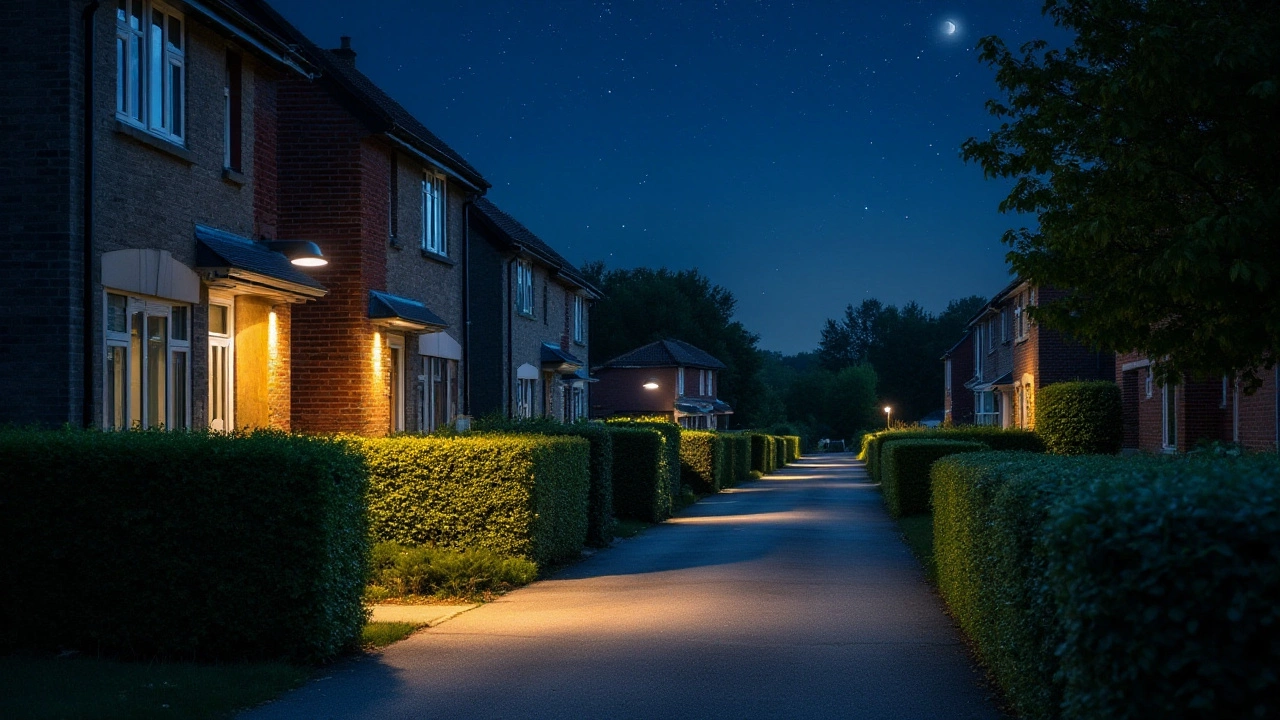When you think about home security, the first thing that comes to mind is usually cameras, alarms and bright lights. But what if you could protect your house and lower your electricity bill at the same time? That’s what energy‑efficient security is all about – using smart devices that need less power, run on renewable sources and still give you full coverage.
Modern security cameras are far better than the clunky boxy models of a decade ago. Most new IP cameras use low‑power chips that draw under 5 watts, which is the same as a night‑light. Pair that with a small solar panel, and you can place a camera anywhere – even where there’s no plug. The panel charges a built‑in battery during the day, and the camera runs off that store at night. You’ll notice the difference on your utility bill instantly, and you avoid the cost of digging up walls for new outlets.
If you’re not ready for a solar setup, look for cameras that offer Power over Ethernet (PoE). One Ethernet cable supplies both data and power, cutting the need for a separate adapter. It’s cheaper to install, reduces clutter and keeps power usage predictable.
Traditional floodlights consume a lot of electricity, especially if they stay on all night. Swapping to LED floodlights can drop power draw by up to 80 %. Combine those LEDs with motion sensors, and the light only turns on when something moves in the zone. Some systems also let you set a schedule – for example, lights on from dusk until 10 pm, then off until sunrise.
Many security apps now include eco‑mode settings. Eco‑mode reduces the camera’s frame rate during long periods of inactivity, which saves both power and storage. When motion is detected, the camera automatically boosts to high‑resolution recording, so you never miss important footage.
Don’t forget about your alarm panel. A wired panel drawing constant power can be replaced with a battery‑backed, low‑draw model. These panels often last years on a single set of batteries and still send alerts via cellular or Wi‑Fi.
In short, the key to an energy‑efficient security system is three things: choose devices that use less power, power them with renewable or shared sources, and let smart software turn them off when they’re not needed. By doing that, you protect your home, cut your electricity costs and lower your carbon footprint at the same time.
Ready to upgrade? Start by checking the power specs on your current cameras, swap any old floodlights for LEDs, and enable eco‑mode in your security app. Small changes add up fast, and you’ll feel good knowing your security setup is both safe and green.

Deciding whether to keep your outdoor security lights on or off can be tricky. While leaving them on might deter intruders, it also raises questions about energy consumption and light pollution. This article explores both sides of the debate, offering insights into effective strategies for maintaining safety without compromising on environmental impacts. Discover practical tips to enhance your home’s security using lighting efficiently.